Volume 26 · Number 1 · Fall 2008
100 Ways
that UC Davis Has Transformed the World
Humanities and social sciences
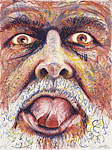
California funk.
Five great artists who came to teach at UC Davis in the early 1960s collectively launched the influential “California funk” art movement. With irreverence and wit, Robert Arneson, Roy De Forest, Manuel Neri, Wayne Thiebaud and William T. Wiley challenged the pretensions of the East Coast art world, charted a new course for a generation of artists and catapulted the UC Davis art department to prominence.
Gay and lesbian issues.
Faculty from a wide range of disciplines have advanced understanding of gay and lesbian issues. Psychology professor Gregory Herek, whose research has focused on hate crimes, was among the leading mental health authors of an amicus curiae brief submitted to the California Supreme Court for its consideration in the state’s 2007 decision legalizing gay marriage.
Economic advice.
Economists in the UC Davis departments of economics and agricultural and resource economics have served presidents and advised governors, informing the farm subsidy debate, tax policy, labor discussions and international trade issues, to name a few. UC Davis is also a resource for scholars elsewhere: It houses the Center for International Data, which contains more information on global trade than anyplace else in the world, and two of its faculty authored the Historical Statistics of the United States (millennial edition), a 4,000-page, five-volume reference work regarded as the most complete statistical source on the U.S.
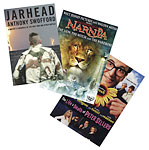
Creative writing.
UC Davis is an incubator for creative writers, launching best-selling novelists, critically acclaimed poets and Emmy-winning screenwriters. A quartet of heavy hitters started the creative writing program in the 1970s: poet Karl Shapiro, winner of a Pulitzer Prize; novelist and screenwriter Diane Johnson; poet Sandra Gilbert; and Elliot Gilbert, editor of the California Quarterly. The program’s Tomales Bay Workshops continue to strengthen UC Davis’ reputation as an important center for writers.

Improving K–12 education.
With agricultural extension as its model, UC Davis goes out into the field to provide continuing professional education and other services for teachers statewide. It has reached thousands of teachers through programs like the Cooperative Research and Extension Services for Schools Center, with its special focus on those who work in historically underserved schools; the History Project, which gives classroom teachers the opportunity to learn from such faculty as Pulitzer Prize-winning UC Davis historian Alan Taylor, and Mondavi ArtsBridge, which trains teachers to teach the visual and performing arts. UC Davis students help, too. Through Davis Bridge, hundreds volunteer each year as tutors at local elementary schools.
Ecocriticism.
UC Davis was a pioneer of this literary movement, starting with its first “Art of the Wild” summer writing workshop in the Sierra in 1992. UC Davis went on to become one of the most prominent centers for ecocriticism, a field that examines literature not just for character, theme and plot, but also for the ways in which writers depict the natural environment and human interactions with it.
Gratitude.
Just writing down five things you’re grateful for every day can improve your well-being, UC Davis research has shown. The exercise works for cancer patients, chronic pain patients, college students — and every other group that psychologist Robert Emmons has studied. His work in gratitude is groundbreaking in the field of positive psychology.
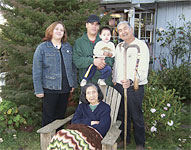
Saving tribal languages.
Since 2000, UC Davis scholars and volunteers have been working to revive more than 100 indigenous California languages. With funding from the National Science Foundation, they have been transcribing some 500,000 pages of notes left behind by linguist J.P. Harrington, who interviewed the last surviving speakers of many native California tongues.
Native American Studies.
UC Davis produces Ph.D. scholars with expertise in the indigenous experience throughout the Americas. It is one of only three universities in North America that grants doctoral degrees in Native American studies.
Child victims, child witnesses.
Psychology professor Gail Goodman’s research has played a pivotal role in helping society to balance the need to protect children from abuse with the need to protect innocent adults from false accusations. Her research, which reveals both children’s limitations and strengths as witnesses, was cited most recently in a 2008 U.S. Supreme Court decision that banned the death penalty for child rapists.
Writing matters.
UC Davis is one of a small number of universities that require writing courses for all students, not just English majors or those who require remedial writing help. The University Writing Program works to ensure that everyone who earns a UC Davis undergraduate degree, whether in math, music or science, can write about his or her field with clarity and style. The groundbreaking effort is capturing attention: U.S. News & World Report for the past two years has recognized the UC Davis undergraduate writing program for its excellence.
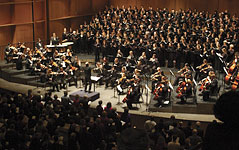
Arts showcase.
UC Davis enriches the lives of people in the region and beyond through arts, entertainment and cultural education programs. The Mondavi Center for the Performing Arts brings world-class performing artists and distinguished speakers to the stage, serves as a teaching resource for the campus and introduces countless schoolchildren to the arts. The campus’s music and theatre departments present more than 100 events each year featuring the work of ensembles ranging from the Symphony Orchestra to the Gospel Choir and the dramatic talents of artists from all parts of the globe. Campus museums and galleries showcase a wide variety of art. And KDVS radio, run by students since its creation in 1964, brings diverse programming to its listeners on the air and online.
Safe playgrounds.
UC Davis research helped to guide the safety standards adopted by the U.S. Consumer Product Safety Commission in 1981. Play equipment must be sized according to age, have rounded edges, guardrails and soft sand underneath.
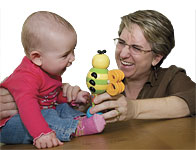
Baby sign language.
UC Davis research gave birth in the 1980s to “baby sign language,” a then-revolutionary way to communicate with infants. Ongoing studies by UC Davis psychology professor Linda Acredolo have demonstrated that children who sign as babies have higher IQs at age 7 and 8 than those who don’t.
Mental health.
UC Davis psychologists have increased understanding about mental health issues faced by Asian Americans and helped therapists learn to deal more effectively with cultural differences and ethnic populations.
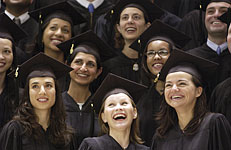
A world of alumni.
From the time the first students graduated in 1911, UC Davis alumni have been making their mark in the world — and beyond. Among their countless achievements are winning Olympic gold medals, directing Oscar-winning Disney films, heading UNICEF and flying through space as astronauts. With every year, the Aggie impact multiplies. From nine students in the 1911 class, our living alumni total has grown to 185,000.
« Return to 100 ways introduction

